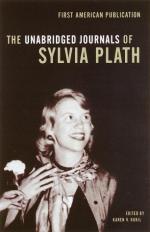|
This section contains 4,823 words (approx. 17 pages at 300 words per page) |

|
SOURCE: Easthope, Anthony. “Reading the Poetry of Sylvia Plath.” English 43, no. 177 (Fall, 1994): 223-35.
In the following essay, Easthope discusses Plath's place in poetic tradition, particularly as it pertains to Romantic poetry.
The confession is a ritual of discourse in which the speaking subject is also the subject of the statement; it is also a ritual that unfolds within a power relation … Beginning in the sixteenth century, this rite gradually detached itself from the sacrament of penance, and via the guidance of souls and the direction of conscience—the ars artium—emigrated toward pedagogy, relationships between adults and children, family relations, medicine, and psychiatry.
—Michel Foucault, The History of Sexuality
Sylvia Plath wrote in a number of forms, including novels, but her main reputation comes from her work as a poet. It is her poetry, then, which calls for attention and assessment. In this short essay I shall try...
|
This section contains 4,823 words (approx. 17 pages at 300 words per page) |

|


